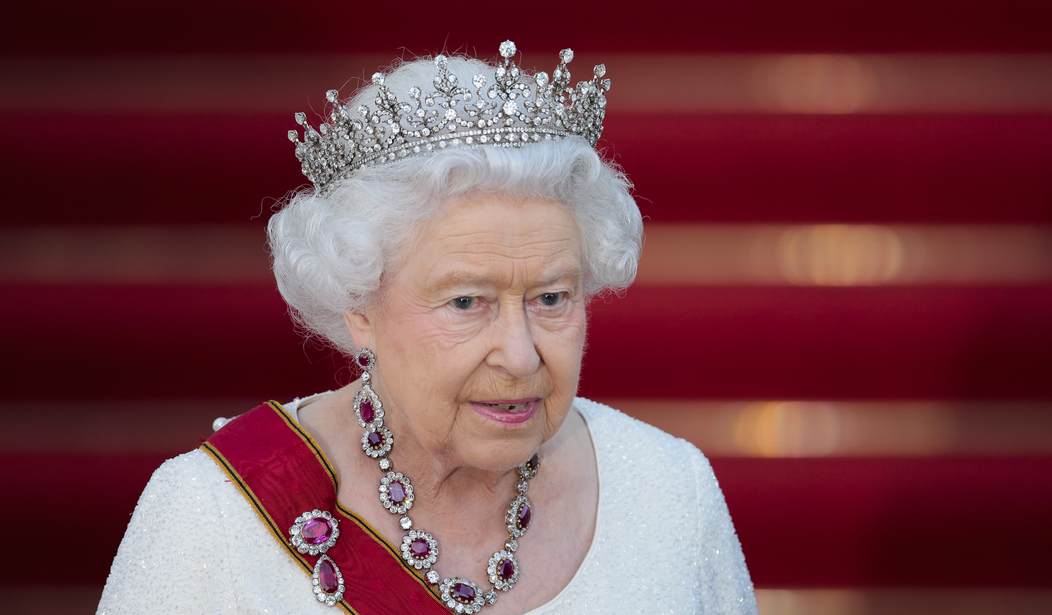Queen Elizabeth II reigned for 70 years as a “constitutional monarch.” That means she had extremely limited power within a constitutional framework.
Most of the power she had came from her personal prestige and the prestige of the crown. As for the latter, that prestige has been diminishing. A recent YouGov poll found that just 31 percent of young people 18-24 preferred the monarchy versus 41 percent who wanted to see an elected head of state. According to the UK Independent, “support for an elected head of the state has grown from 26 percent in 2019 to 37 percent in 2020. And now to 41 percent in 2021 — a total jump of 15 percentage points.”
Americans have long had an unseemly fascination with British royalty. Unseemly because the United States was born as the result of a revolt against the very idea that wearing a crown made someone a better person than you. It’s a silly idea, a stupid idea, an anachronistic idea, and a dangerous idea. And for the British, it’s an idea that has had its day and should now be forgotten.
Think about it: the notion that who your father is gives you the right to rule is antagonistic to republican principles and based on the ancient, debunked idea that bloodlines matter — that contained in your blood alone is superior intelligence, wisdom, and good judgment.
Hereditary rule needs to end. Force Charles to run for king. Perhaps Algernon the barber could challenge him. Given the popularity of the new king, it’s entirely possible that Algie would win.
Either that or just toss the monarchy — including all hereditary titles and the tedious rigamarole associated with royalty — into the dustbin of history along with other stupid ideas like communism and socialism.
At one time, there were 70 nations in the British Commonwealth. Now, there are 14. And former colonies in the Caribbean and Africa are itching to slough off this last vestige of colonialism.
“As the role of the monarchy changes, we expect this can be an opportunity to advance discussions of reparations for our region,” Niambi Hall-Campbell, a 44-year-old academic who chairs the Bahamas National Reparations Committee, said Thursday.
Hall-Campbell sent condolences to the Queen’s family and noted Charles’ acknowledgment of the “appalling atrocity of slavery” at a ceremony last year marking the end of British rule as Barbados became a republic.
The British people aren’t slaves to tradition, but they revere it. That’s the consequence of living in a country that’s been a country for a thousand years. But it’s also an argument for the royal part of that history to end.
It would be in a sense fitting should Charles be the one to begrudgingly permit the decoupling of the British state from the monarchy. His earliest namesake, Charles I, was deposed and beheaded in the English Civil War, leading to the temporary dissolution of the British monarchy. Charles II returned to the throne in the Restoration, but the absolute power that the king once held had begun to yield irreversibly toward Parliament’s dominance over the affairs of state.
Over the centuries since, that shift has only grown more prominent, leaving the monarchy more a point of nostalgic pride than actual necessity. Charles, or more likely William, may yet find themselves presiding over a newfound surge of devotion to the Crown. But it is all the more likely, and better, in my view, that Elizabeth II be viewed in history as the last of the British monarchs to have any real claim of ruling the British people.
Phillip Blond, director of a British think tank and author of a book defending the monarchy in the modern age, writes, “A king is a person vested with ruling and sovereign authority over land and people. He is a single personage with the right to rule over the nation.”
“By that account, a president or prime minister is a monarch who differs only in the principle of selection that confers upon him or her that particular role,” he added. “In spite of much protestation, we are (thankfully) nowhere ruled by the mass.”
The difference in ” the principle of selection” is the difference between liberty and tyranny. Kings and queens are not “selected.” They are born into it. Republicans rightfully object to blood making a bigger difference than ability or even popularity.
Unless some cataclysm befalls the UK, the monarchy will continue as is. But eventually, those least tied to tradition will end this quaint form of government, and the royals will be forced to beg for crumbs from the British parliament.










Join the conversation as a VIP Member